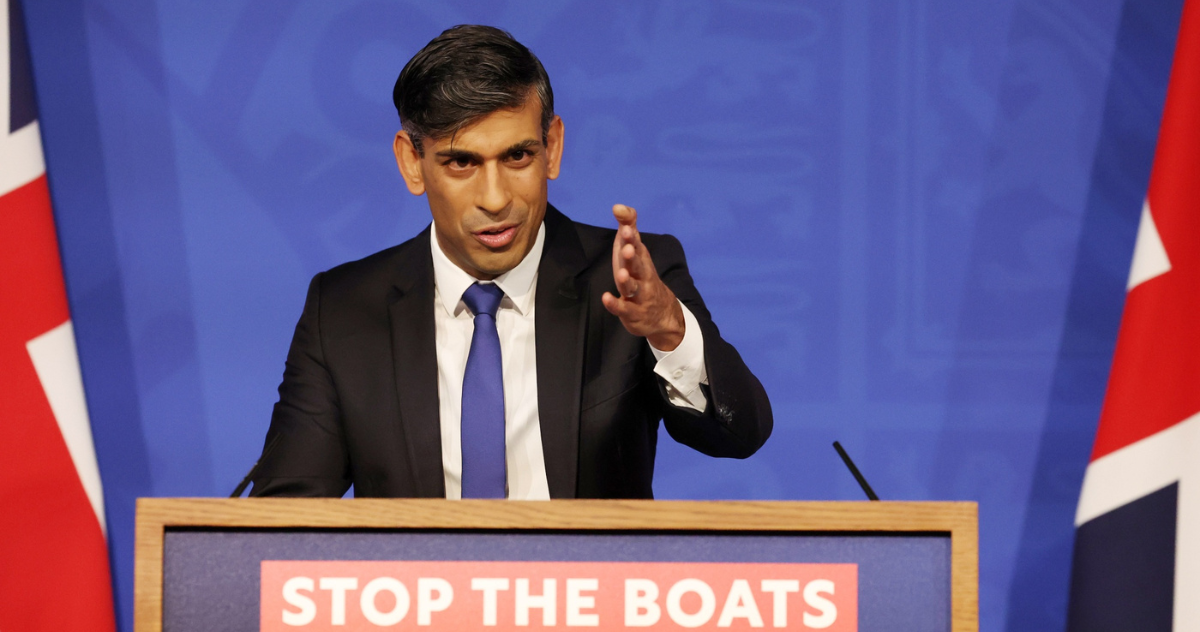London (Parliament Politic Magazine) – Ahead of a crucial vote on Tuesday, Prime Minister Rishi Sunak is fighting to win over Tory MPs to his centerpiece Rwanda bill. The bill aims to bring back the government’s proposal to transfer particular asylum seekers to that nation in East Africa. Right-leaning MPs have stated that the bill is too little and cannot be implemented as written.
Ben Wallace Stated
The former secretary of defense, Ben Wallace, pleaded with other Tory MPs not to “wreck” the administration by opposing the measure. He cautioned against “making the perfect (but unrealistic) the enemy of the good” in a Telegram note. On Tuesday, Members of Parliament will have the opportunity to discuss and vote on the primary ideas of the Safety of Rwanda Bill. During its first parliamentary test, they were often known as its second reading.
Sir Geoffrey Cox Warns
“If we go on like this, of course, we’re going to switch off millions of people upon whose votes we depend,” former attorney general Sir Geoffrey Cox said on BBC Newsnight.”This bill is the beginning of the solution to the problem,” he said on the program. We must come together, make improvements, but see it through.”Deterring migrants from crossing the Channel is the primary goal of the government’s “stop the boats” plan, which Mr. Sunak has made a significant priority.
A Tory MP revolt may bring down the Rwanda plan and undermine the prime minister’s credibility. Around forty members gathered on Monday night to discuss their voting strategies. As they left the meeting, several MPs stated they were debating whether to vote against the bill or abstain. Only one or two MPs at the meeting had spoken in favor of voting for the law, according to two MPs who said the group had the necessary numbers to vote the legislation down.
The European Research Group, an influential group of Tory MPs on the party’s right, had earlier claimed that the measure offered an “incomplete solution” to the issue of potential legal challenges against those deployed to Rwanda. “Very significant amendments” would be required, it stated.
Read More: United Kingdom to issue unlimited fines to environmental polluter businesses
Mark Francois Recommendations
Mark Francois, its chairman, urged the government to rescind the measure and draft a new one that doesn’t have “so many holes in it.”The more than 100 members of the moderate One Nation group of Conservative MPs said after a meeting on Monday night that they would be voting in favor of the measure at this time. However, the organization said that it would be against any further changes to the bill “that would mean the UK government breaking its international obligations and the rule of law.”
The government was encouraged to “stand firm against any attempt to amend the bill in a way that would make it unacceptable. Those who believe that support for the rule of law is a basic Conservative principle” by the group’s chairman, former Deputy Prime Minister Damian Green. But opposition parties like Labour have already stated that they would attempt to block it, so the government must make sure that enough Tory MPs support it in order for it to succeed.
Conservative opponents of the measure may choose to let it pass at this point, maybe by abstaining, in the hopes of gaining concessions from the administration when it moves through the Commons. However, a number of MPs who had been certain to support the government in Tuesday’s vote in the hopes of changing the law later on now appear to be considerably less optimistic about that prospect.
Politically speaking, this would be almost cataclysmic for Mr. Sunak if there were enough dissidents to cause a defeat. That possibility could be sufficient to have him entirely rescind the measure. Last Monday, the government submitted emergency legislation in response to the Supreme Court’s ruling that the Rwanda policy was unconstitutional. The bill declares Rwanda a safe nation under UK law, therefore attempting to preclude planes from being banned on legal grounds.
Critics counter that the courts would still be overloaded, and removals would be delayed even if only a portion of these cases were successful. Those who wish to push it further contend that people may still legally challenge it if they can show strong proof that their unique situation puts them in danger. While Downing Street stated that the government would keep an open mind to the opinions of Members of Parliament, it felt that the bill was “strong enough to achieve its aims.”

